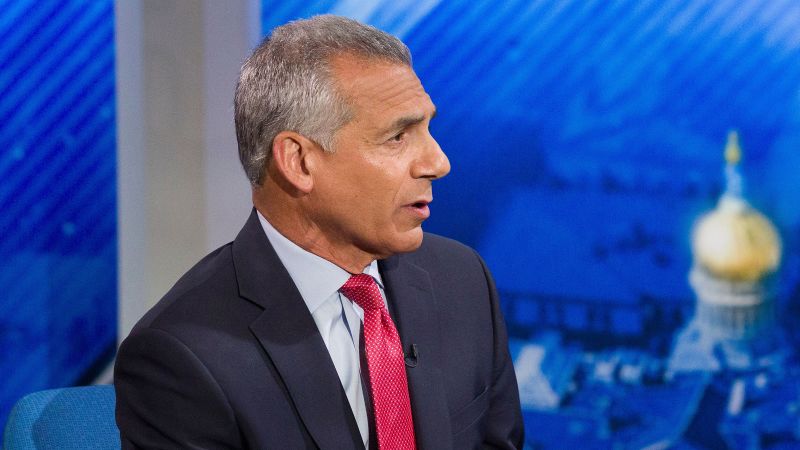In a pivotal moment for New Jersey politics, Mikie Sherrill, a four-term Democratic congresswoman, and former Republican state Representative Jack Ciattarelli have emerged victorious as the nominees for their respective parties in the gubernatorial race. The projections from CNN’s Decision Desk affirm their positions within their parties, setting the stage for a competitive showdown in the upcoming election. This election is increasingly important not only within the context of New Jersey but also as one of the two notable gubernatorial contests this year, alongside Virginia. The outcomes in both races will serve as significant indicators of President Donald Trump’s performance in office and the political landscape as both parties gear up for the midterm elections next year.
The campaign trail has been heavily influenced by Trump, who has become a central figure in both Sherrill and Ciattarelli’s campaigns. For Sherrill, her military background as a former Navy helicopter pilot and a track record of congressional service have positioned her as a viable candidate against the backdrop of Trump’s influence. She surpassing five opponents in the Democratic primaries demonstrated her appeal, as all the candidates took a stand against what they perceived as the tumultuous nature of Washington politics. On the other hand, Ciattarelli’s nomination comes after a narrow defeat in the 2021 gubernatorial races, further solidified by Trump’s endorsement, showcasing the former president’s ongoing relevance in Republican circles.
Traditionally, New Jersey voters have leaned toward choosing gubernatorial candidates from the party not in power at the federal level, a trend that has shown consistency over the years except for the 2021 election when Phil Murphy, a Democrat, was re-elected shortly after Joe Biden’s presidential victory. Intriguingly, New Jersey has also demonstrated a political shift to the right in the 2024 general election, as indicated by Vice President Kamala Harris’s slight victory margin of just six percentage points, a stark contrast to Biden’s nearly 16-point win in the previous election. This shift illustrates the dynamic nature of voter sentiment in the state and raises questions about how that might impact the gubernatorial contest.
Sherrill’s campaign adeptly positions her as a determined fighter against Trump’s administration and policies. Having gained notoriety upon winning a formerly Republican-held seat during Trump’s presidency, she has built her platform around affordability for New Jersey residents and a commitment to democratic values. In primary debates, she has been vocal about the risks of compromising values for expediency, asserting her stance that current governance under Trump cannot be worked with effectively without sacrificing essential principles.
Facing Sherrill in the primaries were notable candidates including Jersey City Mayor Steven Fulop, Newark Mayor Ras Baraka, former State Senate President Steve Sweeney, New Jersey Education Association President Sean Spiller, and Congressman Josh Gottheimer. Each of these figures brought their platforms and support structures to the race, creating a rich tapestry of candidates focusing on various issues pertinent to New Jersey voters. Despite the competition, Sherrill’s background in national security and public service resonated with voters who craved stability and strength against the backdrop of political chaos.
For Ciattarelli, the challenge ahead is monumental, as he strives to rally Trump’s loyal base while attempting to win over more moderate and independent voters who may be hesitant to fully embrace the former president’s agenda. His assertion that Trump’s endorsement enhances his candidacy underscores the significant role Trump’s influence plays within New Jersey’s Republican landscape. During the debates, Ciattarelli’s support from Trump emerged as a contentious point, with rivals leveraging past criticisms and debating the authenticity of their support for the former president, highlighting the complex relationship many candidates have with Trump’s legacy.
As the electoral battleground of November approaches, both candidates are acutely aware of the critical nature of voter turnout and engagement. Sherrill aims to drive her base by focusing on the tangible issues faced by voters, painting herself as a defender against the extreme policies aligned with Trump. In parallel, Ciattarelli seeks to unify the party under Trump’s banner while pushing back against the attacks from opposing candidates concerning loyalty and authenticity.
The gubernatorial race in New Jersey thus parallels a microcosm of the broader national political climate, with the stakes high for both candidates as they navigate their unique challenges and the sensitivities of voter sentiment in the ever-evolving political landscape of the state. Each candidate’s strategy will not only reflect their personal political ambitions but also the overarching narrative of alignment and dissent within their respective parties as they aim for a critical victory in the gubernatorial seat.



